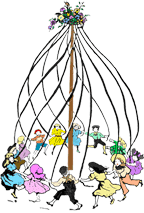Pocatello's Revenge
Chief Pocatello, who led a small band of Indians a part of the Shoshone Tribe ruled over by the Great Chief, and white man’s friend, “Woshiku”, placed a spy among the villagers at Mendon for the purpose of keeping him informed as to every movement of the whites, their food supplies and measures for protection.
The word Pocatello means “One who will not keep the middle of the road”, and this chief lived up to his name. He was hated as well as feared by the whites all through Cache Valley, the hunting ground of this outlaw chief.
Here at Mendon his spy was as hateful as the chief and became a public nuisance always listening, peeking, meddling. If two or three folks stopped to talk at a corner, there this Old Buck would be leaning idly against a post, listening. While the folk were gathered at Church, the old fellow could be seen moving about peeking into everything, then off he would go each morning to report to his chief.
At a meeting of several of the leading men of the town it was decided to drive this old Indian from its boarders and forbid him to enter again. Three men were delegated to carry out this decision.
The three men moved in on the old fellow just as it was getting dark, and drawing their knives ordered the spy to leave. Whether he misunderstood this as an attack, we do not know but he drew his own knife and rushed at one of the men who plunged his knife into the Indian’s heart. As he fell dead at his feet he remarked rather sourly, “Well, that’s one more good Indian gone.”
The rest of the men did not take it so calmly and wrapped the body of the Indian in a buffalo robe and carried it to the outskirts of the town, near by a pond, and buried him in the field, carefully collecting all the dirt from the bottom of the grave in a blanket to insure that no trace would be left. After the dirt was placed back in the grave the field was plowed that same night with ox teams and hand plows.
The next morning as if by magic Chief Pocatello and twenty of his braves appeared on the streets of the town and without a word began to search for the Old Spy. All day they looked everywhere and in and under everything that might hide a body; they even walked over the very field that held the secret grave.
As the long shadows heralded the coming of night the Chief and his braves came again to the center of town and Pocatello, standing like a bronze statue shock his fist at the silent closed doors and shouted so all could hear, “I’ll make you pay for this.” The Indians left and a sigh of relief could be heard from every house. Then life went on again as usual.
The threat was almost forgotten in the rush of spring work but on April 7, 1869, thirty days later, the whole Valley was aroused by the news that George Thurston’s baby girl, three and one-half year old, had been stolen from her home by Indians.
George Thurston and Kelsey Bird had built a flourmill on Garners Creek, in the summer of 1864 and Thurston, with his family lived at the mill, which was about two miles south of Mendon, and managed its operations. This afternoon of April 7, while the old water wheel turned the squeaking machinery of the old mill, an April shower came up. Mr. Thurston called the children in but Rosie did not come in with the rest of the children. Every foot of ground carefully searched for tracks. At last in some tall grass was found a spot where two Indians had hidden; the baby girl’s footprints ended here. Pocatello had struck. Little Rosie was never recovered but in later years an old Indian told how the little girl had died only a few years after she was stole, of pneumonia.1
![]()
1. Cache County School District Children and Teachers, et al., History of Cache County, 1938 & 1946, p. 108–109.
